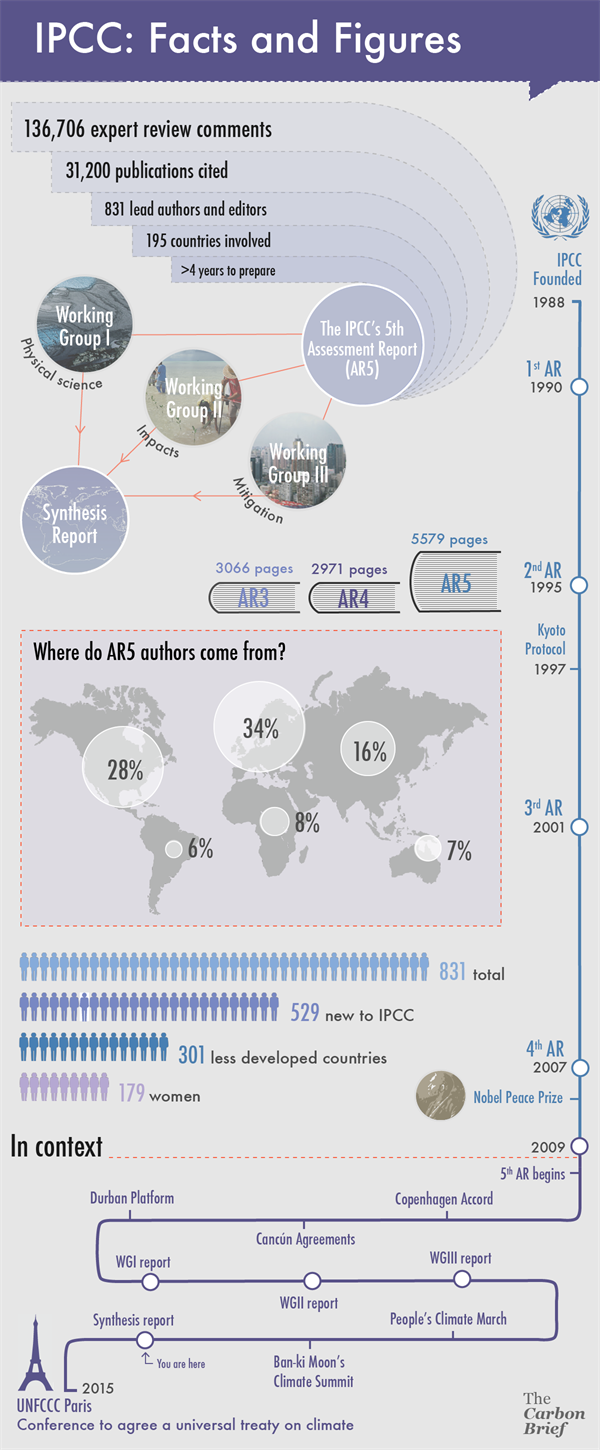Today marks the release of an important document in the climate science world.
At 10 am this morning, the group of experts tasked by the United Nations with assessing the state of the climate released a major report on how and why it is changing, as well as what we can do about it.
Covering everything from declining sea ice to harnessing energy from the wind, the 100-page document has been hailed as an essential “handbook” on climate change.
It connects the dots between three reports released by the Intergovernmental Panel on Climate Change (IPCC) over the past year, each looking at a different aspect of climate change.
Totting up the risks
Greenhouse gas emissions from humans are the highest in history, the first in the series of reports told us last year. Greenhouse gases trap heat in the atmosphere. Carbon dioxide and other greenhouse gases are released when we burn fossil fuels like coal, oil and gas.
As a result the oceans, land and atmosphere are warming, snow and ice cover is melting, our weather is getting more extreme and sea levels are rising.
The second report looked at how climate change is contributing to problems like flooding, disruption to farming, food and water shortages, and species migration and extinction.
But humans can act to limit climate change. The third IPCC report looked at how we can avoid the worst impacts of climate change by curbing emissions from the way we get energy.
We can also make society more resilient by building flood defences and safeguarding food and water supplies, for example. That means when climate change impacts do hit, we’re better prepared.
Connecting the dots
Today’s Synthesis Report tells a concise story, drawing on all three reports. It says that if governments work to cut emissions and adapt to new conditions, we can still keep the risks of climate change low.
Beyond two degrees of warming, the risks posed by climate change are too high and it’s unlikely we could deal with the consequences, nations have collectively agreed.
With the right policies we can prevent dangerous climate change, allow ecosystems to adapt, and ensure countries can develop sustainably, all at the same time, the IPCC concludes.
On the other hand, the slower we take action, the harder it will be and the more expensive it will get. Not acting now puts a very heavy burden on future generations, the report says.
The report makes it clear that climate change is a collective problem. Because climate change affects everyone, nations must cooperate to limit it. It will only be possible to limit the extent of climate change if nations work together.
The IPCC is an advisory body – it doesn’t tell the world’s leaders what to do. But today’s report is the clearest guide yet from scientists about why we need to keep climate risks in check.
The IPCC, in one infographic


